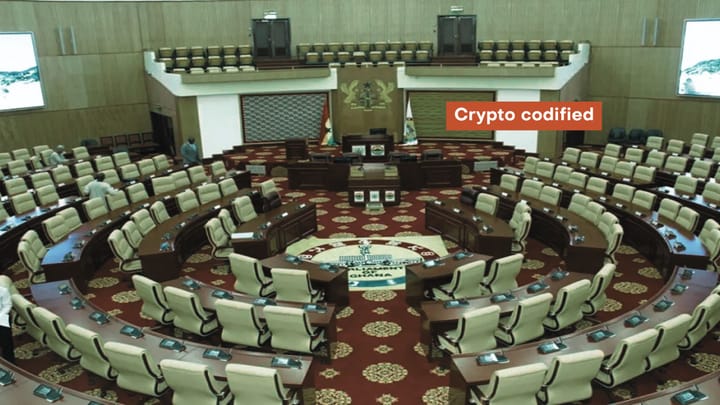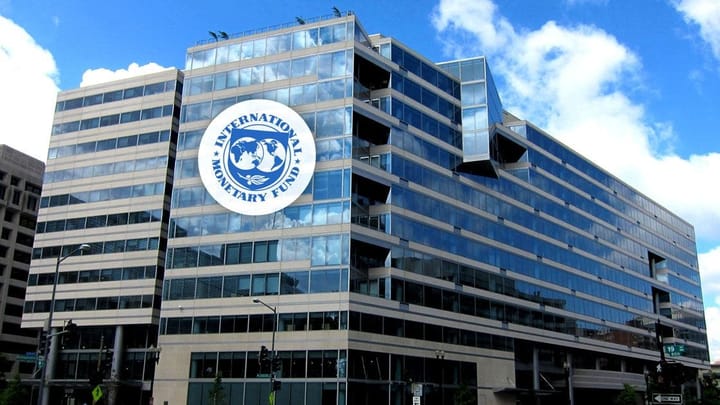🟠 What “OnChain” actually means — and why it matters for Africa
The OnChain Conference 2025 brings together Africa’s blockchain builders, regulators, and business leaders for two days of focused discussion on the operational realities of building onchain systems.
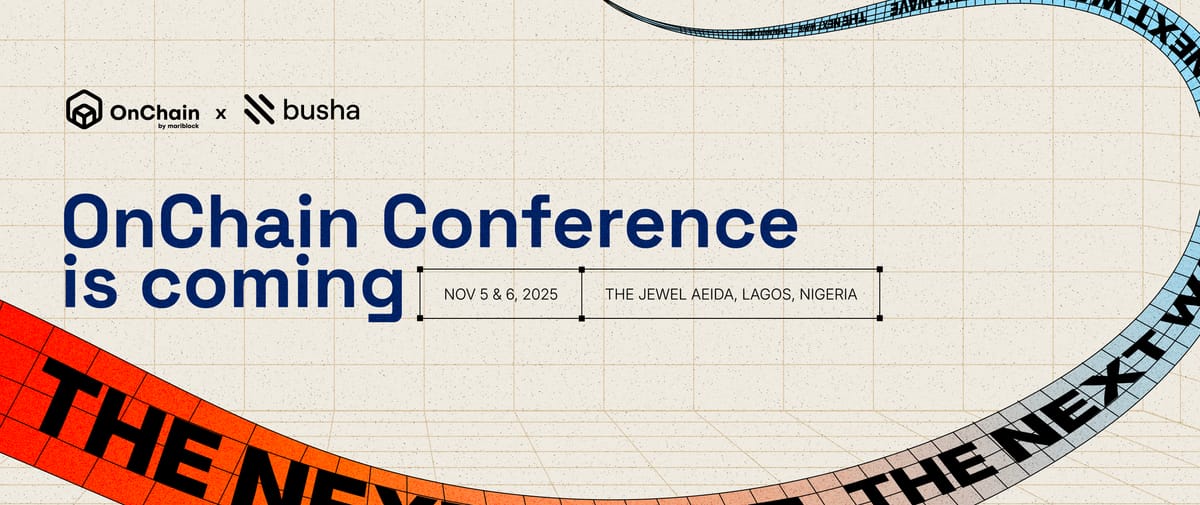
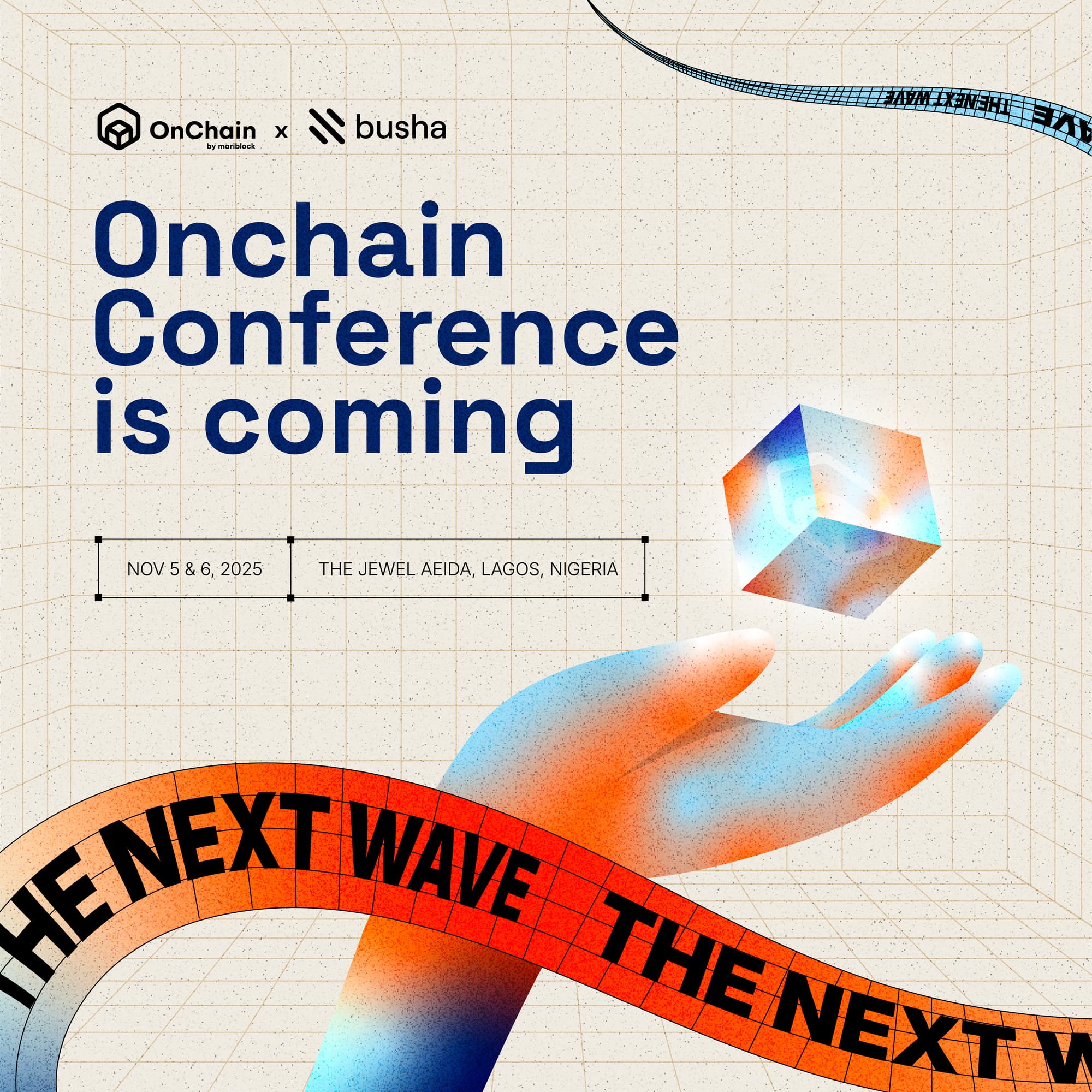
Some months ago, I spoke with Chiboutu Amadi, founder of Paycrest, who shared an analogy about the power of onchain transactions.
At Alaba International Market, one of Nigeria’s largest electronics hubs, a trader needs to send ₦100 million ($65,000) to a manufacturer in China. Through a bank, the process takes days, involves multiple middlemen and attracts high fees. By using stablecoins onchain, the same transaction settles in under 10 minutes at a fraction of the cost.
According to Chainalysis, sending a $200 remittance via stablecoins in Sub-Saharan Africa is about 60% cheaper than using fiat-based systems. This reflects a growing reality: in Q1 2024, Nigeria recorded nearly $3 billion in stablecoin transactions under $1 million, showing that many Africans are already living onchain even if they don’t use that term.
These numbers reflect a fundamental shift: Africans are building onchain infrastructure because existing systems don’t serve their needs.
We’re hosting The OnChain Conference 2025 at the Jewel Aeida, Lagos, on November 5&6, 2025, because we believe this new reality demands serious industry conversation.
Why OnChain matters now more than ever
- Traditional financial systems were designed for a world where every transaction depended on people checking documents, banks acting as gatekeepers, and trust being placed in institutions.
- Onchain systems turn that model on its head by replacing institutional permission with mathematical certainty, opening up possibilities that simply weren’t available before.
- This isn’t just about trading crypto; it’s about businesses realizing that building onchain can deliver stronger economics and more efficient operations than traditional financial rails ever could.
- For African companies in particular, onchain infrastructure changes the rules of competition: it allows them to enter global markets and scale across borders without being slowed down by the usual obstacles of bank approvals, costly intermediaries, or geographic limitations.
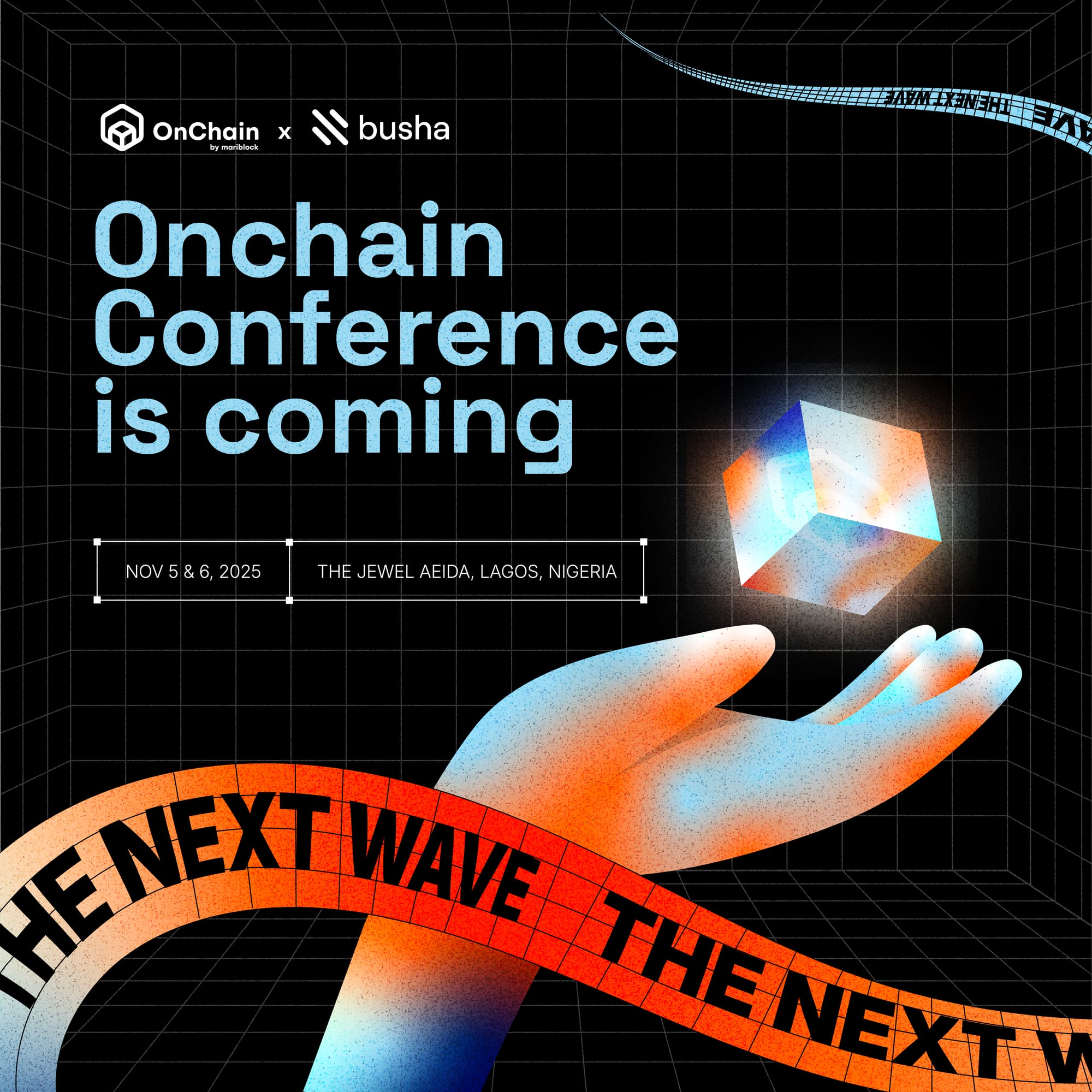
The gap we’re filling
Most blockchain conferences focus on investment themes or broad adoption narratives. The OnChain Conference focuses on what happens when you actually build onchain:
- The technical decisions
- Regulatory implications
- Business models that work.
What this means for you
- If you’re building in the African blockchain space, you’re part of an ecosystem that’s transitioning from experimental to operational.
- The industry has moved beyond proof-of-concept, and we now have working products, regulatory frameworks taking shape and real users generating real revenue.
- The next phase requires a different kind of knowledge about blockchain’s operational realities.
The OnChain Conference 2025 brings together Africa’s blockchain builders, regulators, and business leaders for two days of focused discussion on the operational realities of building onchain systems.
The inaugural edition will take place on November 5-6, 2025, at the Jewel Aeida, Lagos in partnership with Busha.
Join the waitlist for early access: mariblock.xyz/onchain-waitlist
That’s all for this week!
If you found this helpful, please consider sharing it with a friend or colleague or forwarding it online.
Till next week,
Ogechi.


